The internet is powered by many small processes that we never see happen behind the scenes. One such thing is DNS resolution which converts the URLs you type in your browser’s URL bar and converts them to IP addresses which are then used to look for the server where the website you want is hosted.
If the DNS server fails, you can run into major issues with your browsing. In this article, we’re talking about the “DNS server might be unavailable” error, what causes it and how you can fix the problem.
What causes this error?
As you can likely guess from the name of the error, it’s triggered when your DNS server is unavailable to serve your queries, meaning any URLs you type aren’t being looked up for their IP addresses.
The ‘Your DNS server might be unavailable’ error can be caused by several issues, the most common ones being:
- Issue at your ISP’s end.
- Incorrect DNS settings.
- DNS server not responding or being down.
- Error in the DNS cache.
Also read: How to fix DNS_Probe_Finished_Bad_Config error?
How to fix this?
Here are a few solutions you can try out to fix the Your DNS server might be unavailable error
Reboot your router
First, try unplugging and plugging back your router after waiting for 5 mins. Once your router is up and running, try to load some websites.
Then, use the URL you give for your router and log in to your account. Go inside the System settings and choose Reboot.
Check your antivirus
Although a bit of a far shot, you should check your antivirus to see if it’s restricting access to your DNS server. This can happen due to several reasons, but if something fishy shows up in your antivirus, there could be malware present on your machine that could be causing the error.
Also, if you’ve got more than one antivirus program on your PC, try disabling all but one. Multiple antivirus programs can often cause conflicts with each other that can restrict your internet access, among other issues.
Also read: What is IGFXEM module? How to disable it?
Clear DNS Cache of your browser
A buggy DNS cache can sometimes redirect your browser to the wrong site and cause this error. You can try clearing Chrome’s DNS cache to see if the issue gets resolved.
Step 1: Fire up Chrome and head to chrome://net-internals/#dns.
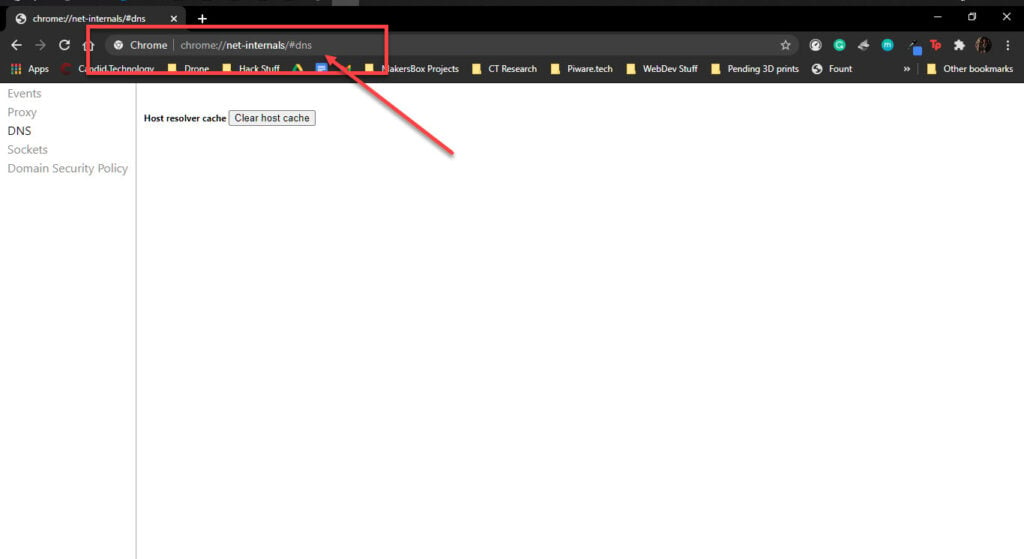
Step 2: Click on the Clear host cache button to clear out your DNS cache.
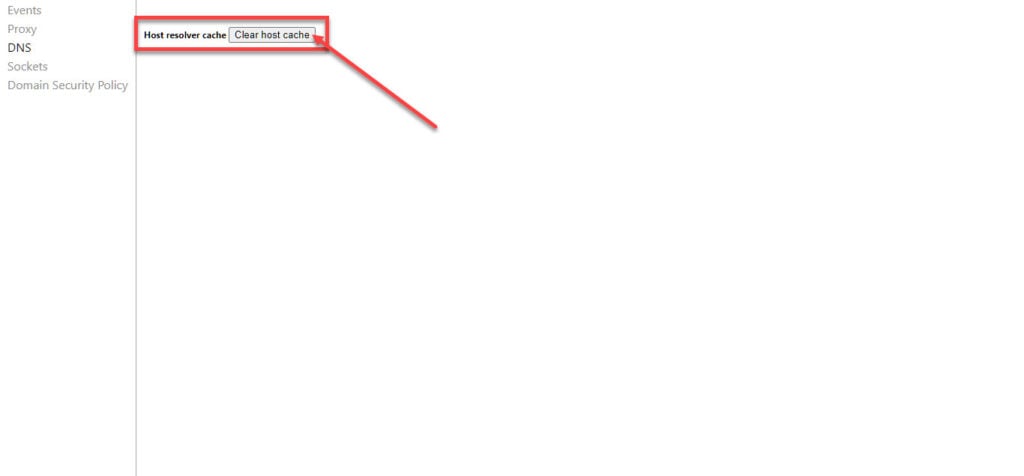
Restart the browser and try to access the site you were having issues with again.
Use command prompt to flush DNS
The error ‘Your DNS server might be unavailable’, itself states that it has something to do with DNS settings. Misconfigured DNS settings can cause a lot of headaches. Here’s how you can reset them.
Step 1: Press Windows key + R and type in cmd, and hit enter.
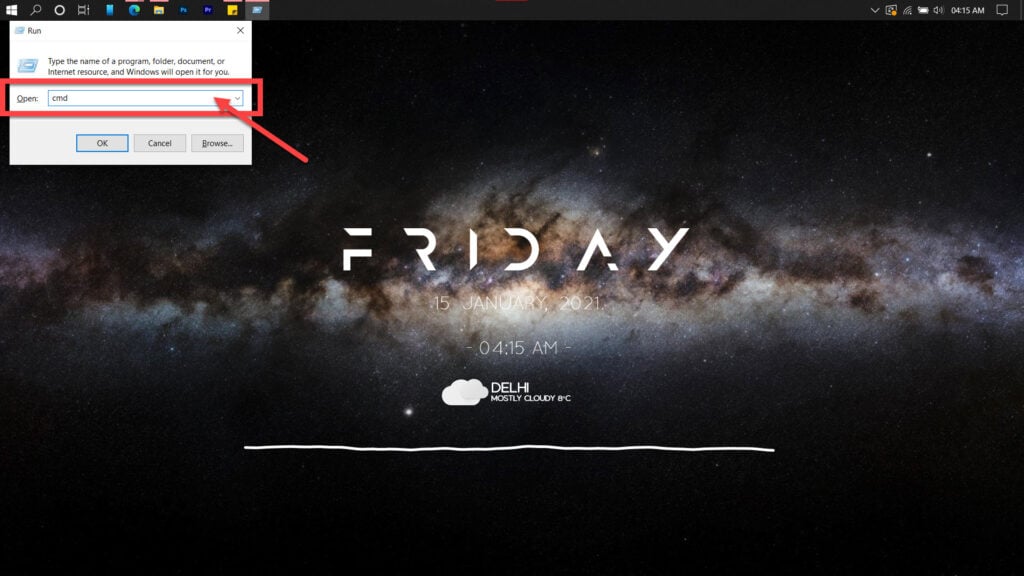
Step 2: Type in ipconfig /flushdns to reset DNS settings to default.
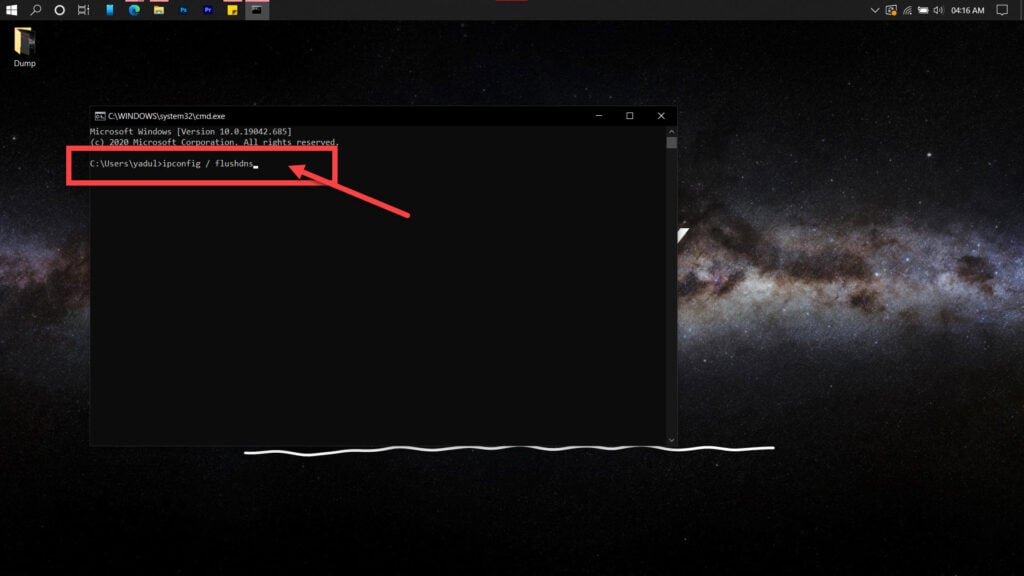
If the above command doesn’t help, try entering these commands in the Command Prompt one at a time.
netsh winsock reset
netsh int ip resetIf you suspect an issue with your router’s DHCP assignment, use these commands to release your old IP and request a new one.
ipconfig /release
ipconfig /renewIf this doesn’t work, use the following commands to reset your network stack.
ipconfig/flushdns
nbtstat -R
nbtstat -RR
netsh int ip reset C:\resetlog.txt
netsh winsock resetHead over to your terminal on a Mac and type in sudo killall -HUP mDNSResponder. Next, type in your password when prompted for it, and try re-accessing the internet.
Also read: How to fix the ‘DNS probe finished no internet’ issue?
Run the Windows network troubleshooter
Windows 10 comes with many handy troubleshooters that are pretty effective at rooting out problems from your PC. Try running the Network Adaptor troubleshooter to see if it can resolve the issue.
Step 1: Press Windows Key + I to open Windows Settings. Click on Update and Security.
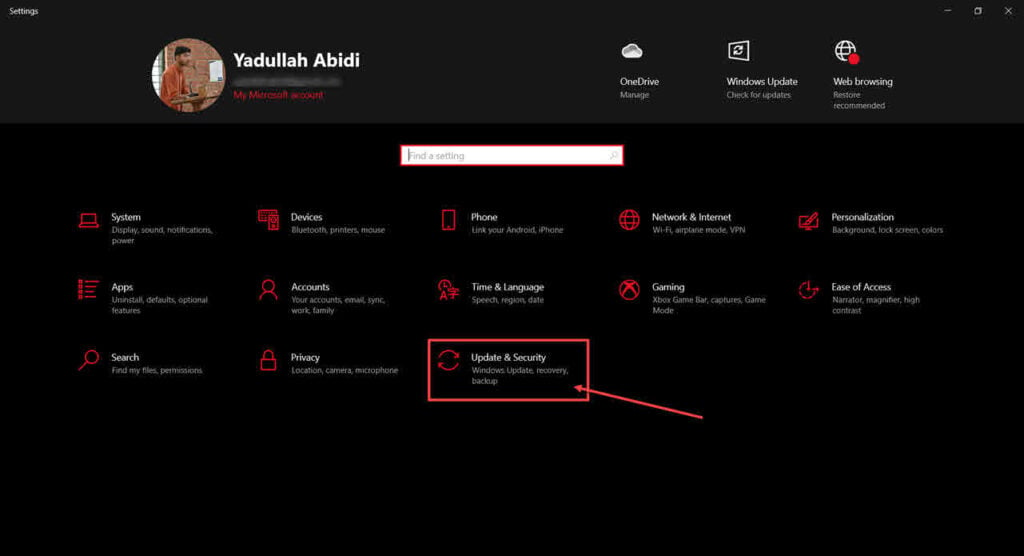
Step 2: Head over to the Troubleshoot tab and click on Additional troubleshooter.
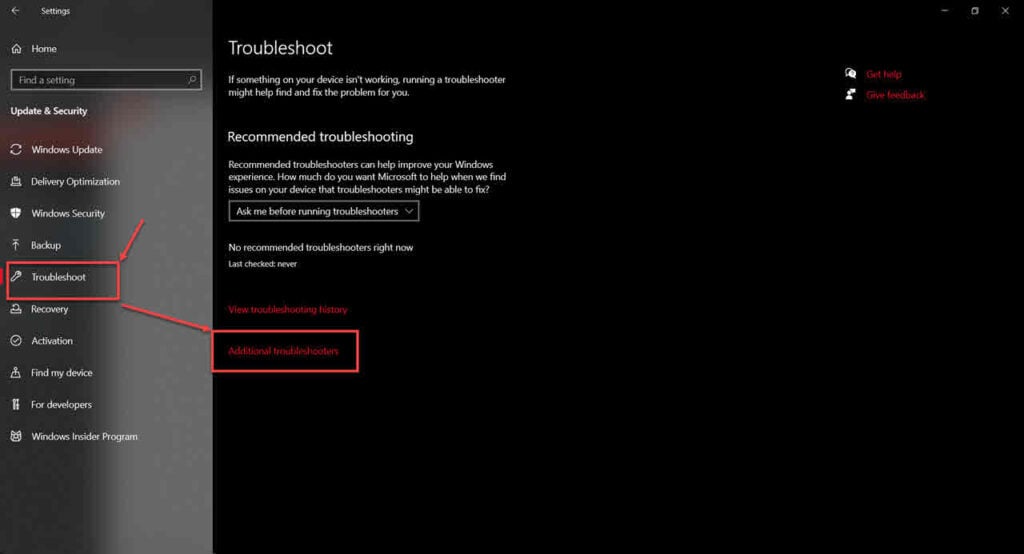
Step 3: Find and run the Network Adaptor troubleshooter.
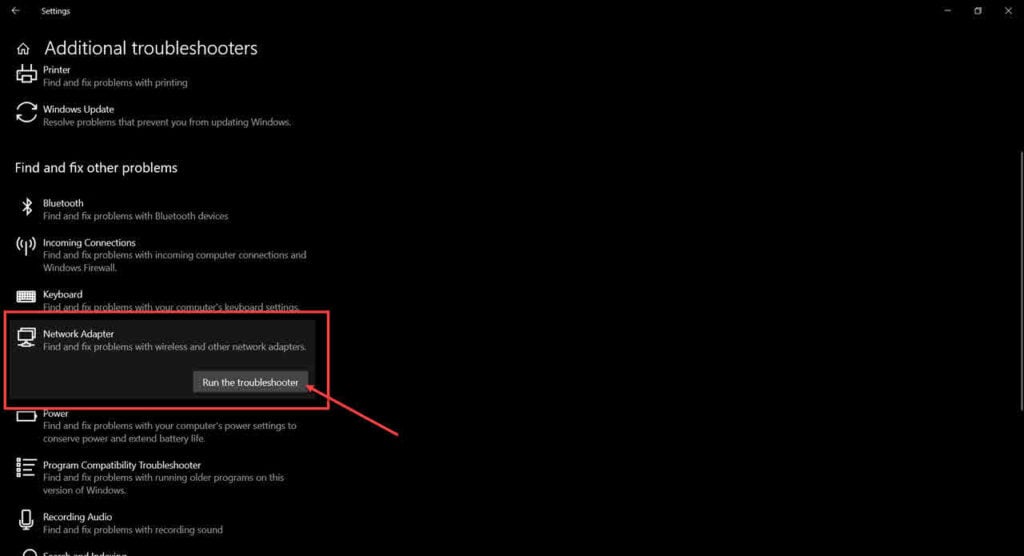
Once the troubleshooter has finished running, restart your PC and try again.
Try another DNS
There are multiple free DNS providers using whom you can fix this issue. In this example, we’re going to use Google’s DNS.
Step 1: Press Windows key + I to open the Windows settings and click on Network & Internet.
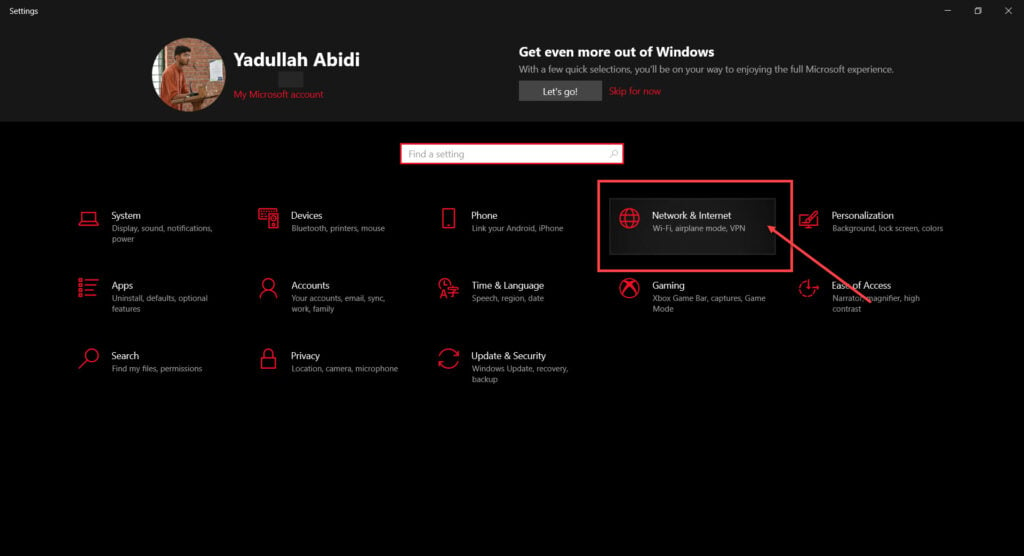
Step 2: Click on Change adaptor options.
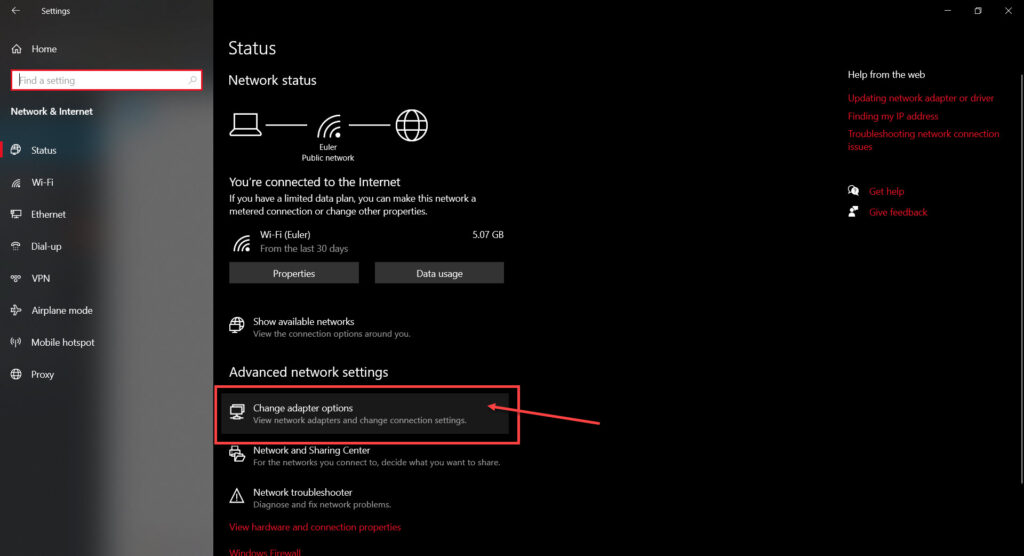
Step 3: Right-click on your active network (WiFi or LAN) and click Properties.

Step 4: Find Internet Protocol Version 4 in the list, click on it, and click Properties.
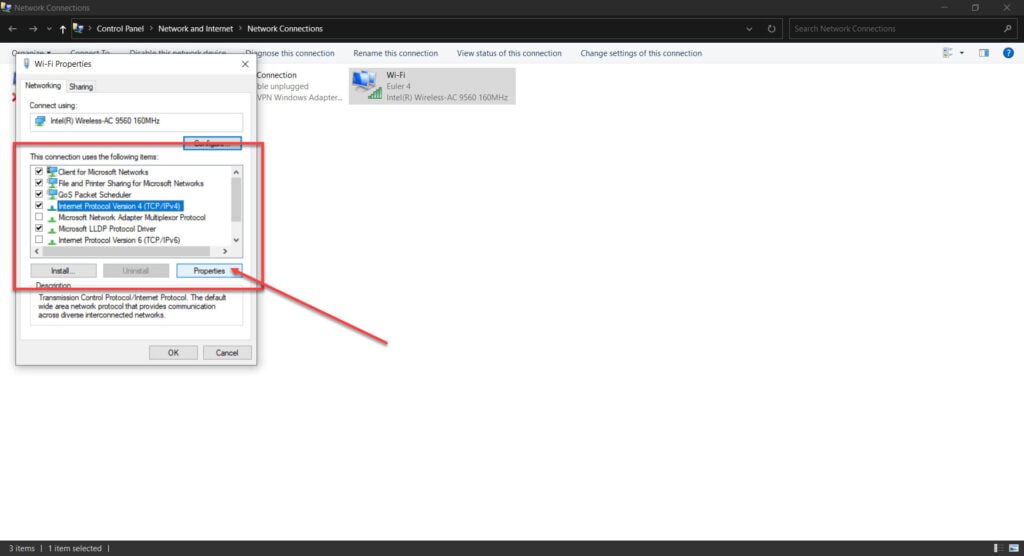
Step 5: Check the Use the following DNS server addresses radio button and type in 8.8.8.8 and 8.8.4.4 in the preferred and alternative DNS addresses, respectively.
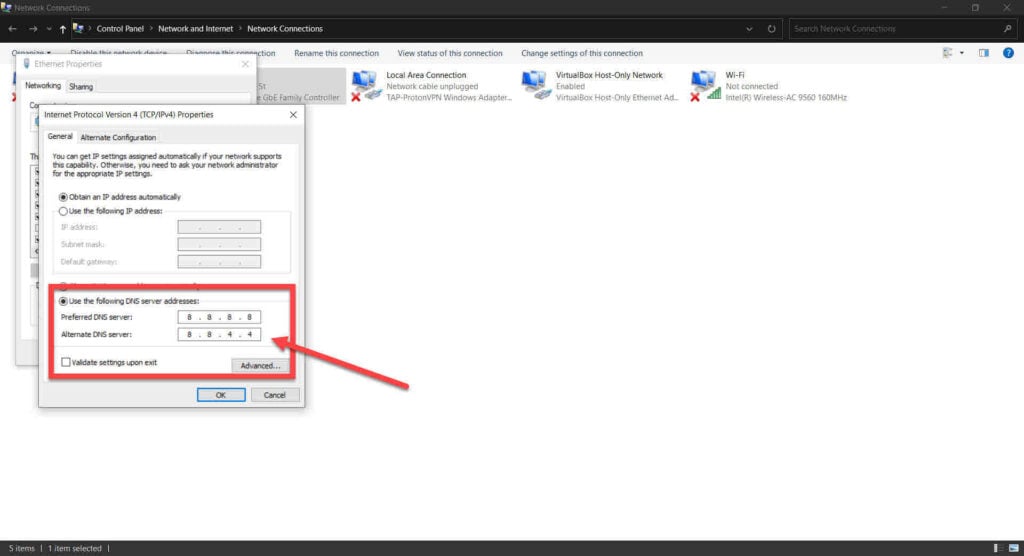
Also read: What is Mdnsresponder? Why is it running on my Mac?






